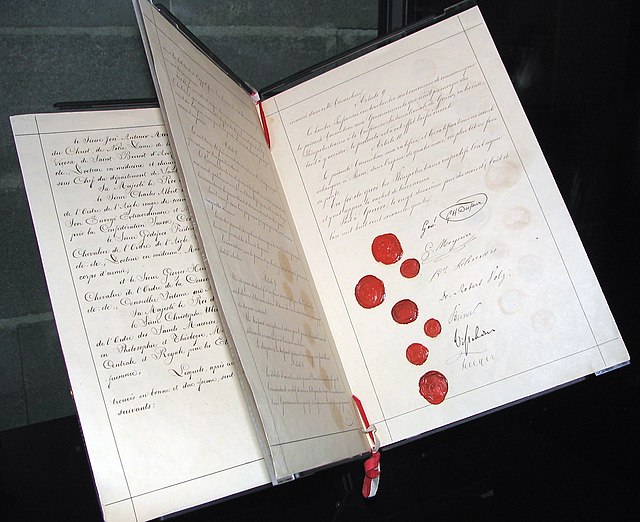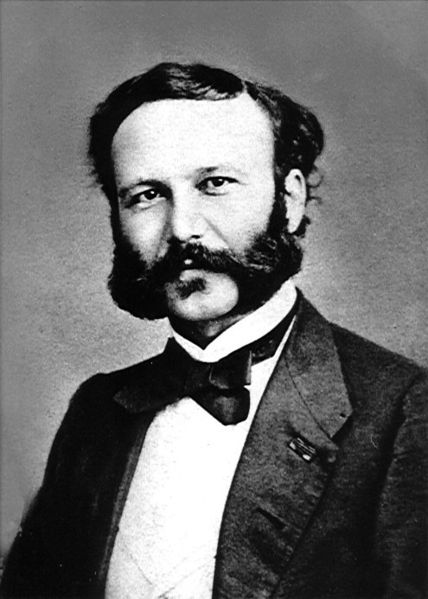The First Geneva Convention for the Amelioration of the Condition of the Wounded in Armies in the Field, held on 22 August 1864, is the first of four treaties of the Geneva Conventions. It defines "the basis on which rest the rules of international law for the protection of the victims of armed conflicts."
The first-ever Geneva Convention governing the sick and wounded members of armed forces was signed in Geneva in August 1864.
Henry Dunant, co-founder of the Red Cross
The signing of the first-ever Geneva Convention by some of the major European powers in 1864
The Geneva Conventions are international humanitarian laws consisting of four treaties and three additional protocols that establish international legal standards for humanitarian treatment in war. The singular term Geneva Convention colloquially denotes the agreements of 1949, negotiated in the aftermath of the Second World War (1939–1945), which updated the terms of the two 1929 treaties and added two new conventions. The Geneva Conventions extensively define the basic rights of wartime prisoners, civilians and military personnel; establish protections for the wounded and sick; and provide protections for the civilians in and around a war-zone.
A facsimile of the signature-and-seals page of the 1864 Geneva Convention, which established humane rules of war
A Red Cross poster from the First World War
The original document in single pages, 1864





